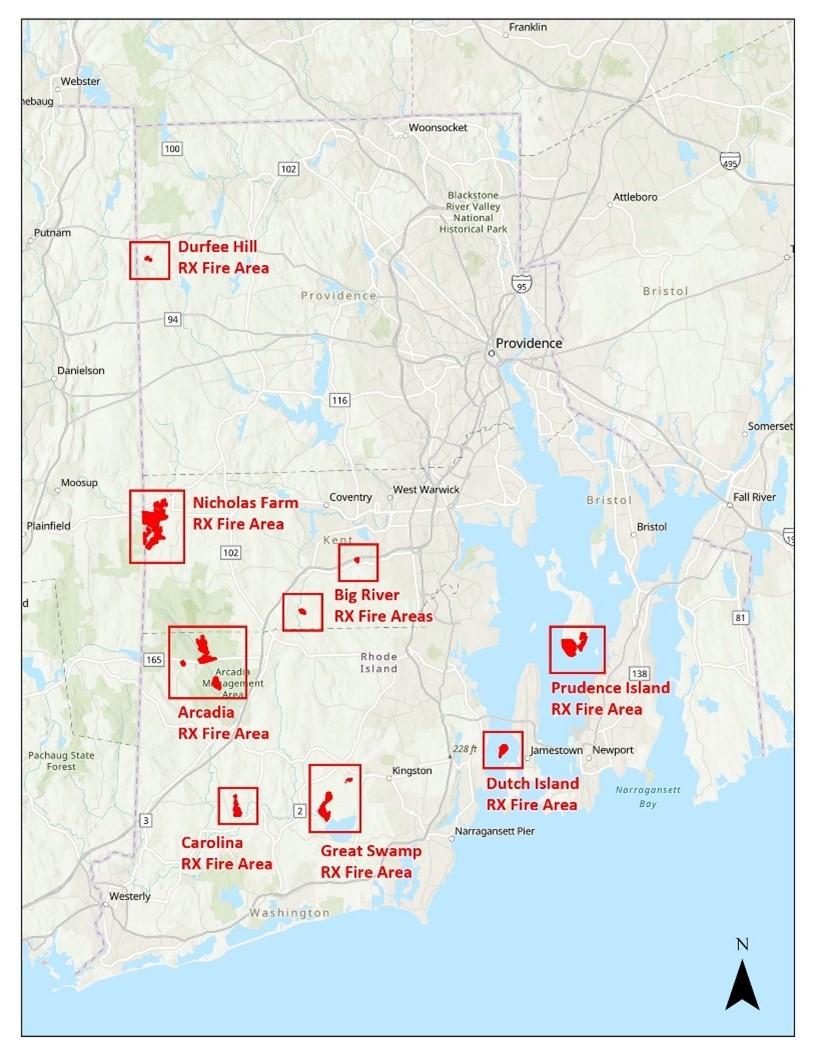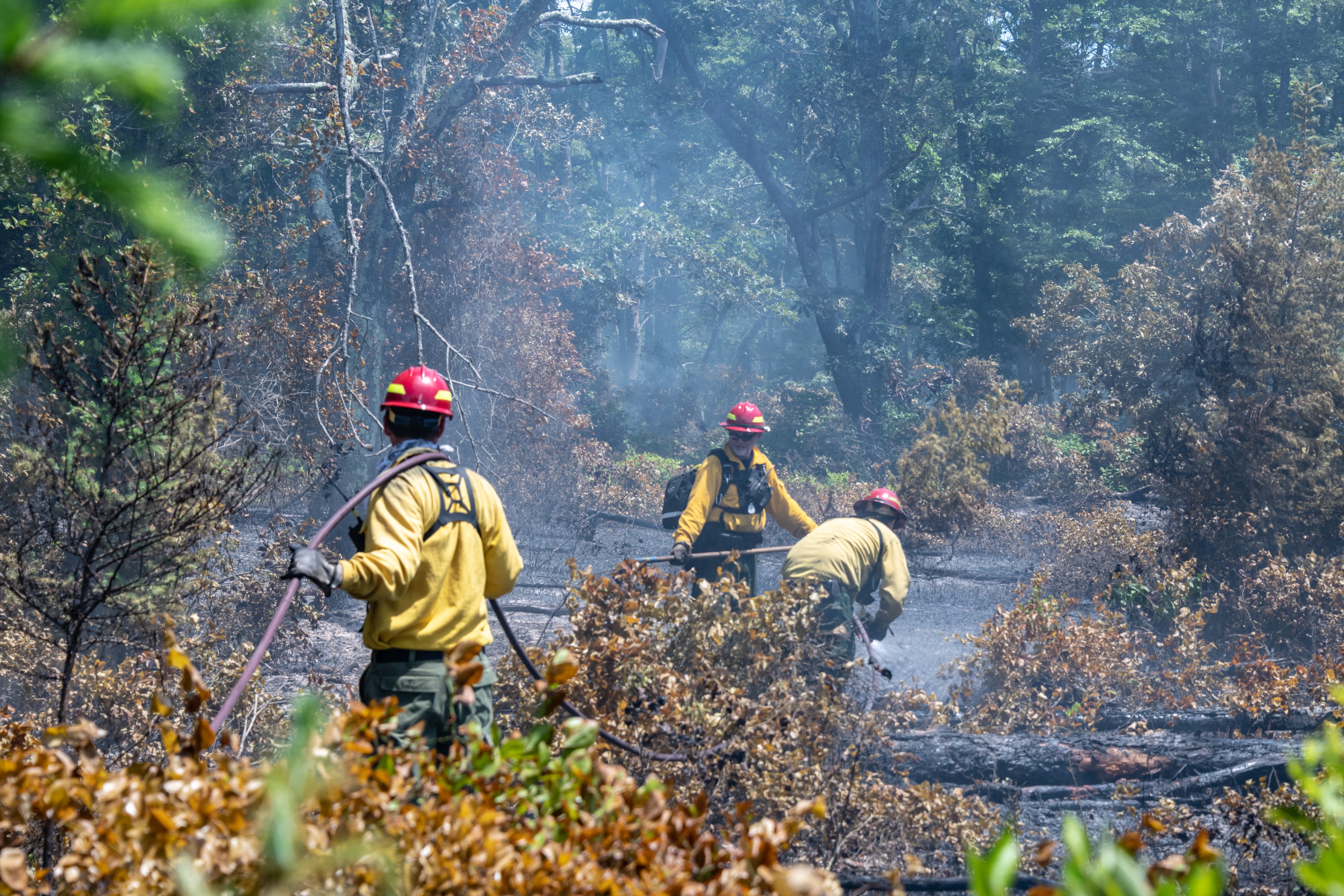What's that smell?
The Rhode Island Department of Environmental Management (DEM) announces its plans to conduct low-severity prescribed burns on state lands on Prudence Island in Portsmouth, Exeter, West Greenwich, Coventry, Richmond, Glocester, Jamestown, and South Kingstown.
The first prescribed burn of 2025 will take place this week on Prudence Island, ahead of DEM’s Forest Fire Program’s spring prescribed fire season. Typically, all prescribed burns are announced a day in advance due to weather and wind conditions. Prescribed, or planned, burning is a versatile tool that natural resources managers use for maintaining habitat diversity and to protect communities from extreme fires by reducing hazardous natural fuels.
A burn window refers to when the environmental variables such as fuel moisture and weather conditions are balanced so that the fire will accomplish its goals, which include reducing fuels, modifying wildlife habitat, and restoring ecological function while remaining under control.
DEM’s
“go/no-go” decision on which of the burns to conduct is often determined by
wind speed and direction, to allow for the optimal dispersal of smoke. DEM
burn managers are targeting parcels at Durfee Hill Management Area in Glocester,
Pratt Farm in the Arcadia Management Area, Nicholas Farm Management Area in
Coventry, Big River Management Area in West Greenwich, Prudence Island, Dutch
Island in Jamestown, Carolina Management Area in Richmond, and Great Swamp
Management Area in South Kingstown.
Wildfires are expected to become more frequent in Southern New England due to climate change. DEM is responding by increasing the use of low-severity prescribed burns to reduce the build-up of combustible materials on forest floors and grasslands and by offering specialized wildfire training classes to build staff and volunteer capacity.
In 2024, DEM treated 130 acres of state property with prescribed fire, nearly a threefold increase from 2023. In 2024, DEM conducted shaded fuel break brush clearing projects along various stretches of forestland on state lands to lessen the risk of uncontrolled wildfires.
By increasing its use of prescribed fire, Rhode Island
is better aligning its land management policies and practices with neighboring
states. Among other benefits, common ecological restoration goals with other
states help to strengthen climate change resilience across southern New
England.
Experts from DEM’s Forest Fire Program, a subsidiary of DEM’s Division of Agriculture and Forest Environment, leads the prescribed burns. They will employ detailed operational and safety plans. A prescribed burn plan developed by a qualified burn boss must be in place before a burn is conducted. Firebreaks and other site preparations are made.
Fire behavior, fuels, and weather are monitored throughout the burn, and if the prescription parameters are exceeded, the fire is shut down. Abutting landowners are notified of fire dates, reasons, and expectations for the burn season.
DEM burn managers have obtained the required local permits and an
exemption from state air pollution control regulation Part 4: Open Fires (250-RICR-120-05-4).
Managers also have communicated with the towns Fire Chiefs, Rhode
Island Southern Firefighters League, US Fish and
Wildlife Service, DEM’s Division of Fish & Wildlife, and the DEM’s Office
of Air
Resources.
For more information on DEM programs and initiatives,
visit www.dem.ri.gov.
Follow DEM on Facebook,
Twitter/X (@RhodeIslandDEM), or Instagram (@rhodeisland.dem) for timely
updates. Sign
up here to receive the latest press releases, news, and events
from DEM's Public Affairs Office to your inbox.

